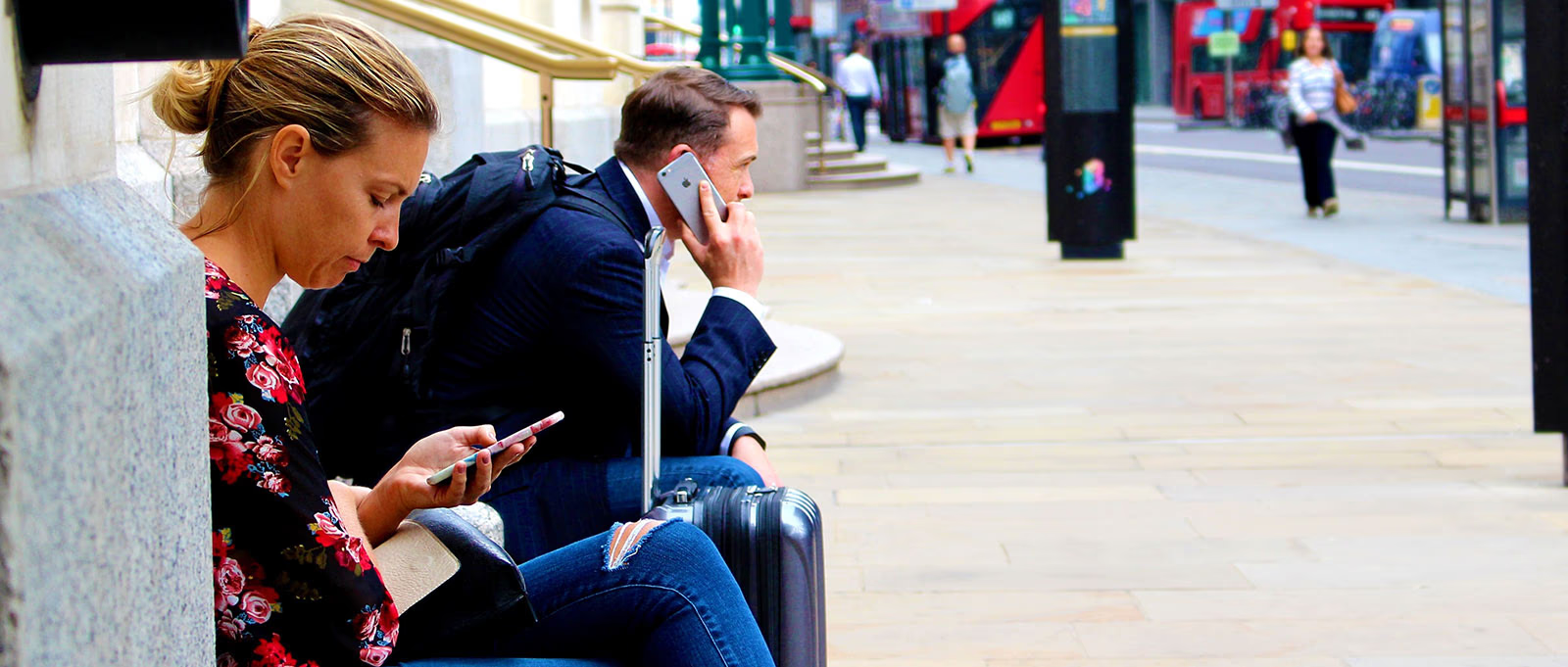
Why you're addicted to your iPhone
Peer reviewed by Dr Laurence KnottLast updated by Dr Laurence KnottLast updated 26 Sept 2017
Just put that iPhone down for one second. If you did, you’re probably OK to move on. If the very thought sent you into a state of panic, you may need to read this article to the end.
In this article:
There’s a growing and worrying body of evidence that suggests at least some of us are addicted to technology; our smart phones in particular. We live in a world of instant gratification. You want pizza? There’s a one-click order button on your home screen. You want friends? There are hundreds waiting for you on Facebook, Twitter and other social media sites. You want a relationship? Just swipe right. It’s all there, right on your phone.
Researchers at Harvard University reported that interacting with social media and our cell phones stimulates the areas of the brain normally associated with feeling pleasure (the mesolimbic system). People find that sharing details about their lives is particularly satisfying. “Self-disclosure is extra rewarding,” said Diana Tamir, assistant professor of psychology. “People were even willing to forgo money in order to talk about themselves.”
Continue reading below
A chemical reaction
It’s been thought that dopamine, a brain chemical, was the main agent signalling the feelings of pleasure, achievement and reward. Raised levels of dopamine are associated with food, sex, alcohol and gambling.
So whenever somebody sends you a tweet or an email, or ‘Likes’ your post on Facebook, they are actually tickling your mesolimbic system.
The theory is attractive but not necessarily accurate. Experiments in patients with Parkinson's disease (who have dopamine deficiency) and animal studies have queried whether dopamine is quite the pleasure hormone it’s cracked up to be.
Whatever the chemical shenanigans going on in the brain, there is a growing evidence base that accessing social media via smart phones is addictive.
Does it matter if we're addicted to our phones?
Simon Sinek, author, marketing consultant and motivational speaker, believes that it does. “If you're sitting at dinner with your friends, and you are texting somebody who is not there - that’s a problem. That’s an addiction”, he said. “If you are sitting in a meeting with people you are supposed to be listening and speaking to, and you put your phone on the table, that sends a subconscious message to the room ‘you’re just not that important.’ The fact that you can’t put the phone away, that’s because you are addicted.”
Sinek’s concern focuses in particular on the millennial generation. His anxiety is that we have raised a cohort of children brought up to believe that they should have anything their hearts desire. Clearly, this is not sustainable. In the adult world, nobody gets a prize for coming last. The result is a disaffected generation with a huge void that needs to be filled.
Some people turn to alcohol, some to drugs, and some to iPhones.
As with other addictions, smartphone addiction has its price. It destroys relationships, costs time and money, damages mental health, and ultimately stops people from achieving their full potential. When people become unfriended on Facebook, don’t get the hits they expected on Twitter, or watch their inbox dwindle, the low self-esteem which drove them to become addicted in the first place, drops even lower.
Continue reading below
What are smartphone manufacturers doing about this?
Ex-employees who were involved in the creation of the iPhone are certainly concerned. “I don’t feel good about the distraction. It’s certainly an unintended consequence,” commented Greg Christie, who led Apple’s human interface team. “The fact that it is so portable so it’s always with you, it’s radically easy to use compared with previous digital technology products, and it provides so much for you means that the addiction actually, in retrospect, is not surprising.”
The companies themselves seems less concerned. Search the Apple or Samsung company websites for addiction and you get zero returns.
Nevertheless, several applications designed to control smartphone use and combat iPhone addiction are available from iTunes, Apple’s online shop window for apps. These include Breakfree, which helps monitor your addiction and make it easier for you to unplug and disconnect, and Unplugged, which blocks distracting notifications about emails and social media for a pre-set period of time. Other smartphone addiction apps are available for pretty much any operating system.
Google don’t seem to be doing much either, according to a search on (ahem) Google. However Andy Rubin, who helped create Android, the operating system which runs the majority of phones on the market, has devised a phone called Essential, which he maintains will help fight smartphone addiction. His strategy is to develop a phone that can act as your e-representative.
The function is not yet available, but the aspiration is to create AI which can respond to emails for example in the way you would, based on a series of probabilities.
“If I can get to the point where your phone is a virtual version of you, you can be off enjoying your life, having that dinner, without touching your phone, and you can trust your phone to do things on your behalf,” he says. “I think I can solve part of the addictive behaviour.”
Personally, I’ve had my own problems with smartphones but I’m now fully cured of my addiction. I’ve devised a foolproof method which everyone can use. And as soon as I’ve checked my emails I’ll be right back to give you all the details.
Article History
The information on this page is written and peer reviewed by qualified clinicians.
26 Sept 2017 | Latest version

Feeling unwell?
Assess your symptoms online for free